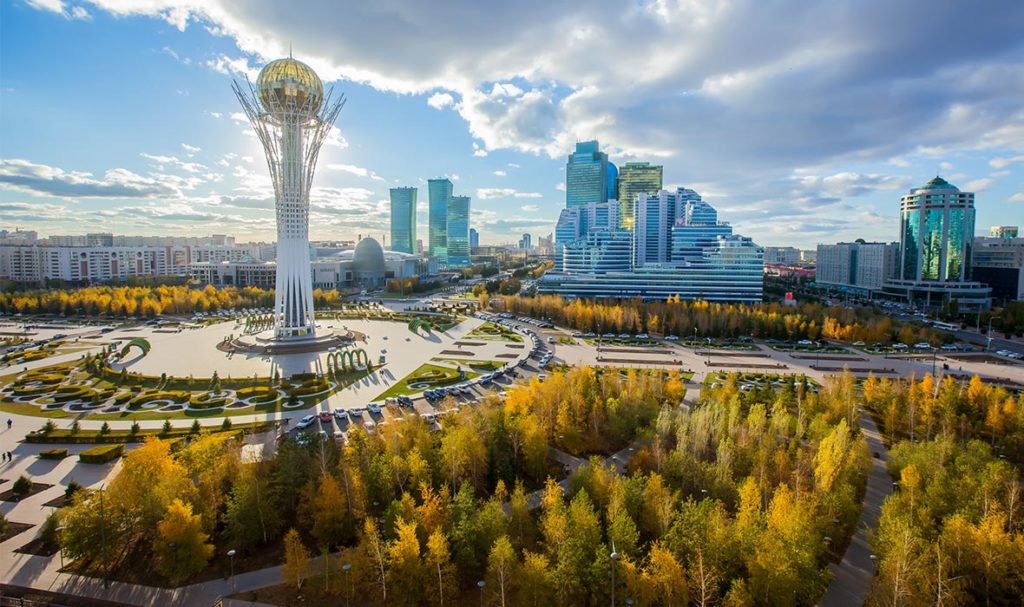
‘You call your luxury yacht “Titanic,” and it sinks soon after that.’
Does the issue sound relevant to you? Can the name really determine the future? We won’t dig into the roots of the question, but if it makes sense to you, then let’s continue with this point: name is destiny. That’s why it’s so important for every nation to have a name which fits it, and why the Republic of Kazakhstan needs this change so badly.
The renaming and rebranding of the country is not just an attempt to distract attention from some political and economic issues. It’s an endeavour to find a new path for the whole state. Historically, Kazakhstan is a very diverse land uniting three zhuzs (union of tribes), and over a hundred tribes and different groups in north, south, east and west. The territory of Kazakhstan is extremely fragmented, and at the beginning of the summer 2022 three more new provinces were added to the map.
Due to public disagreements, in recent times, political, economic, social and other issues have become more complex. This means that the main idea Kazakh officials should keep in their minds – and to a large part they do – is how to build a holistic state with a common ideal. In this case, the question of the name appears to be more complicated than it might initially seem. The current name, ‘Kazakhstan’ (‘Qazaqstan’ – literally, the ‘land of the Kazakhs’) has some inherent contradictions. On the one hand, it’s the name of a territory but not the state, and therefore doesn’t contain any idea of the nation. ‘Stan’ is most likely derived from Slavic language groups, and usually means a limited inhabited area, which doesn’t represent the traditional nomadic mentality and lifestyle of ethnic Kazakhs. The Proto-Indo-European root ‘sta’ means to ‘stand.’ In Russian, ‘stan’ means ‘settlement’ or ‘semi-permanent camp,’ and in other Slavic languages it means ‘apartment.’ Experts in Kazakhstan have also asserted that this name doesn’t work well for the external brand of the country. This is why it makes no sense to use any “territorial” name, such as the ‘Great Qazaq Steppe’ (though it’s perhaps a very interesting name in terms of marketing, it could only be an informal one). So, in 2014, Nursultan Nazarbayev (the president at that time) proposed the new name ‘Qazaq Eli,’ literally ‘the State of the Kazakhs.’
Of Course, some patriotic native Kazakhs supported that idea, and the name itself sounds good, but unlike ‘Kazakhstan,’ it doesn’t take into consideration the multinational composition of the country. Not all ethnic groups are ready to declare themselves ‘Kazakhs’ or agree that Kazakhs are the only ones leading the nation. Within the Kazakh ethnic group there is no consensus either, because there are at least three zhuzs (families) – elder, middle and younger – divided into tribes, so the question about power remains open.
At the beginning of the 20 century, an attempt to give the country the name of a nation was made – it sounded like ‘Alash-Orda’ (meaning ‘people’s republic,’) but it didn’t work. The term ‘Republic’ isn’t particularly useful, and the idea of changing ‘Kazakhstan’ to ‘Qazaq Republic’ didn’t get a huge amount of support. Now, the current president of Kazakhstan, K.-Z. Tokayev has noted that a united nation is important more than ever, and this is not only about the union of people who actually live in Kazakhstan but also about kandas (literally, ‘one blooded persons’) aka oralman (ancient Kazakh tribes representatives born and raised in other countries). More than a million oralman have already come to Kazakhstan and tried to find their place in the community.
Perhaps the best concept, therefore, is a name which reflects not only the mono-structural but also the multi-structural organisation of the state, as is the case with the ‘United Kingdom’,’ the ‘United States of America’,’ or the ‘United Arab Emirates,’ for example. These names give some sense of identity to each national group without losing the main territorial idea of a holistic country. Such names are also very effective name in terms of the international brand, showing democracy and the power of the state, and its modern way of life.
If ‘United,’ though, the next question is ‘United’ what? It could be the ‘United Qazaq Republic,’ but as we have already seen, the term ‘Republic’ doesn’t sit well with historical notions of Kazakh identity based on tribal rules of power. The name ‘United Qazaq Steppe’ is more striking and catches one’s attention with its uniqueness. This name might be a good marketing trick in terms of tourism, but it would be the same thing as ‘Qazaq-stan’ – the name of a territory, but not a nation. A highly authentic name could be the ‘United Qazaq Zhuz.’ Unfortunately, however, this might be a bit narrow to describe the wide variety of peoples that live in the territory of modern Kazakhstan.
So, perhaps the ‘Birikken Qazaq Eli’ (‘United Qazaq State’) or Birikken Qazaq Dostastiq (‘United Qazaq Commonwealth’) are the best options. They both sound powerful, reflect the key identity and give some autonomy to different districts whilst still keeping the whole together. Such a name doesn’t contain a strong territorial tag, but describes a community of lands united by the idea of a common state. Of course, this is only a suggestion, and an analysis of economic or other risks was not the aim of this article, which was simply to attempt to find a new way of understanding the complicated path of the nation in its quest for identity and sustainability.
By Taina Kaunis and Marat Akhmedjanov
